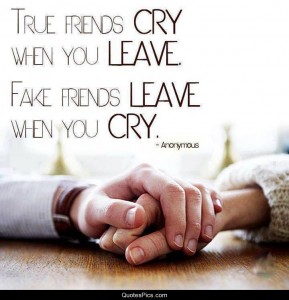

True friendship is reciprocal. True friendship consists of a mutual feeling of goodwill between two people.
“To a friend you must wish good for his own sake. If you wish things this way, but the same wish is not returned by the other, you would be said to have only goodwill for the other. For friendship is said to be reciprocated goodwill. So friends must be well-disposed towards each other, and recognized as wishing each other’s good”, Aristotle Nicomachean Ethics , Book 8
What is a friend? Why are friends important? What does it mean to be in friendship with somebody? These are all extremely important questions when you really think about it – the problem, of course is very few people do.
Before l begin any such discussion I suppose l should try to define “friendship” in terms of what it is and what it isn’t?
First it must be “mutual.”
You can’t be friends if the other person is unwilling. This was a very difficult lesson for me to learn as a small child in elementary school.
To be a friend is above all about means to be in “relationship” with another.
Likewise each person, involved in the friendship must see themselves as being in relationship with each other. It has to be mutual. Each party has to invest time and effort in that relationship.
This is still very difficult at times, because we may wish really bad to be friends with someone but that feeling is not mutual or reciprocal in nature.
Without reciprocity it is impossible to be friends with someone. This doesn’t mean you can’t be friendly with that individual, it just means you can’t truly be “friends” with that person – because they are unwilling. I know that hurts sometimes. I felt the pain myself many time!
To be in a state of “friendship” means you must have certain things in mind:
1) You must have “goodwill” felt towards that person you wish to be in friendship with.
2) There must be an awareness by each of the parties involved that the friendship derives mutual benefits , and that the feeling is mutual.
3) Each party must invest time and effort into the friendship. That often times means spending or sharing time together.
4) Friendship implies certain rights and obligations on each person.
A friend is someone that wishes you well and promotes and invests in that relationship through concerted action.
For example if you call someone and they never return your phone call, respond to your emails, or never wants to hang out or spend time together – that person is probably not your friend.
Part of what being a friend is someone you can can share joy or sorrows with. For example you lose your job and they console you or helps you during that difficult time. If they can’t do that – they are probably not your friend.
A friend stand behinds you and supports you, as you support them.
Actually you can tell who your real friends are in the fact that when you are in trouble they want to help you out. If however when you show any sign of being in trouble and they want nothing to do with you – they are not your friend.
Likewise if they are the only ones deriving any benefits from your friendship and your not getting anything out of the deal, especially when you are willing to make time for that person – they are probably not your friend. Or when you need something and they are not there for you – they are not your true friend.
Benefits and kindness of a friend should be repaid in like measure. We should not take a benefit if we cannot reciprocate.
Aristotle, the great philosopher explains that friendship is “the act of loving rather than the act of being loved.”
It is important that friendship be active, since Aristotle treats friendship as an energeia, akin to pleasure and happiness. Friendship is one of the essential components of the good life, and the value of friendship is in having and enjoying it.
Friendship is both necessary and noble. The presence of friends, then, seems desirable in all circumstances.
We all need friends.

